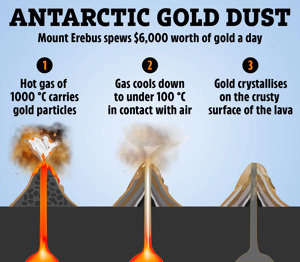Tavex uses cookies to ensure website functionality and improve your user experience. Collecting data from cookies helps us provide the best experience for you, keeps your account secure and allows us to personalise advert content. You can find out more in our cookie policy.
Please select what cookies you allow us to use
Cookies are small files of letters and digits downloaded and saved on your computer or another device (for instance, a mobile phone, a tablet) and saved in your browser while you visit a website. They can be used to track the pages you visit on the website, save the information you enter or remember your preferences such as language settings as long as you’re browsing the website.
| Cookie name | Cookie description | Cookie duration |
|---|---|---|
| tavex_cookie_consent | Stores cookie consent options selected | 60 weeks |
| tavex_customer | Tavex customer ID | 30 days |
| wp-wpml_current_language | Stores selected language | 1 day |
| AWSALB | AWS ALB sticky session cookie | 6 days |
| AWSALBCORS | AWS ALB sticky session cookie | 6 days |
| NO_CACHE | Used to disable page caching | 1 day |
| PHPSESSID | Identifier for PHP session | Session |
| latest_news | Helps to keep notifications relevant by storing the latest news shown | 29 days |
| latest_news_flash | Helps to keep notifications relevant by storing the latest news shown | 29 days |
| tavex_recently_viewed_products | List of recently viewed products | 1 day |
| tavex_compare_amount | Number of items in product comparison view | 1 day |
| Cookie name | Cookie description | Cookie duration |
|---|---|---|
| chart-widget-tab-*-*-* | Remembers last chart options (i.e currency, time period, etc) | 29 days |
| archive_layout | Stores selected product layout on category pages | 1 day |
| Cookie name | Cookie description | Cookie duration |
|---|---|---|
| cartstack.com-* | Used for tracking abandoned shopping carts | 1 year |
| _omappvp | Used by OptinMonster for determining new vs. returning visitors. Expires in 11 years | 11 years |
| _omappvs | Used by OptinMonster for determining when a new visitor becomes a returning visitor | Session |
| om* | Used by OptinMonster to track interactions with campaigns | Persistent |
| Cookie name | Cookie description | Cookie duration |
|---|---|---|
| _ga | Used to distinguish users | 2 years |
| _gid | Used to distinguish users | 24 hours |
| _ga_* | Used to persist session state | 2 years |
| _gac_* | Contains campaign related information | 90 days |
| _gat_gtag_* | Used to throttle request rate | 1 minute |
| _fbc | Facebook advertisement cookie | 2 years |
| _fbp | Facebook cookie for distinguishing unique users | 2 years |
Mount Erebus Releases $6,000 Worth of Gold Every Day

In Antarctica, where temperatures plunge to -25 degrees Celsius even in summer, a remarkable phenomenon occurs at Mount Erebus, one of the continent’s most active volcanoes.
Standing at 3,794 meters above sea level, this volcano not only challenges the icy landscape with its fiery nature but also astonishes with its precious emissions: gold dust.
Volcanic Gold: A Phenomenon Revealed by Science

Source: ZME Science
Mount Erebus, named after the Greek god of darkness, has been an area of intense scientific study since a permanent lava lake was first observed at its summit in 1972. This glowing red spot, visible in satellite images, marks a rare and dynamic geological feature.
Scientists monitoring the volcano have discovered that Erebus is not just an ordinary volcano but a natural gold emitter
According to findings published by IFL Science, Erebus releases about 80 grams of gold each day, which is approximately worth $6,000 at current market prices.
The research highlights that the minuscule gold particles, no larger than 20 micrometers per particle size, are thrust into the atmosphere with each volcanic eruption, dispersing up to 1,000 kilometers from the volcano. This gold, carried far and wide by volcanic gases, presents a tantalising treasure suspended in the air.
Technological Challenge: Capturing the Gold Dust
The idea of harvesting this airborne gold from a volcanic explosion might sound like a plot from a science fiction novel, yet it poses a legitimate technological challenge and opportunity.

Source: The Sun
The particles, due to their microscopic size and widespread distribution in small amounts, would require innovative methods to capture effectively. Scientists speculate that installing a specialised filter directly above the volcano could potentially collect these valuable particles over the long term.
Whoever pioneers this technology could not only advance scientific research but also tap into a novel, albeit challenging, economic opportunity.
Economic and Environmental Considerations
While the concept of mining gold from volcanic ash is enticing, it also raises significant environmental and ethical questions.
The impact of such activities on Antarctica’s pristine environment, governed by strict international treaties, would need thorough evaluation
Moreover, the feasibility of such an operation, considering the harsh and inaccessible nature of the volcanic landscape, adds another layer of complexity to this golden opportunity.
Conclusion
Mount Erebus represents more than just a natural wonder; it is a frontier for adventurous science and potentially profitable technological endeavours.
As we continue to explore and understand these unique natural phenomena, the boundaries between what’s possible and what remains in the realm of fantasy continue to blur.
The future may well see us harnessing the skies for their hidden treasures, transforming the way we think about natural resources and their extraction.

















